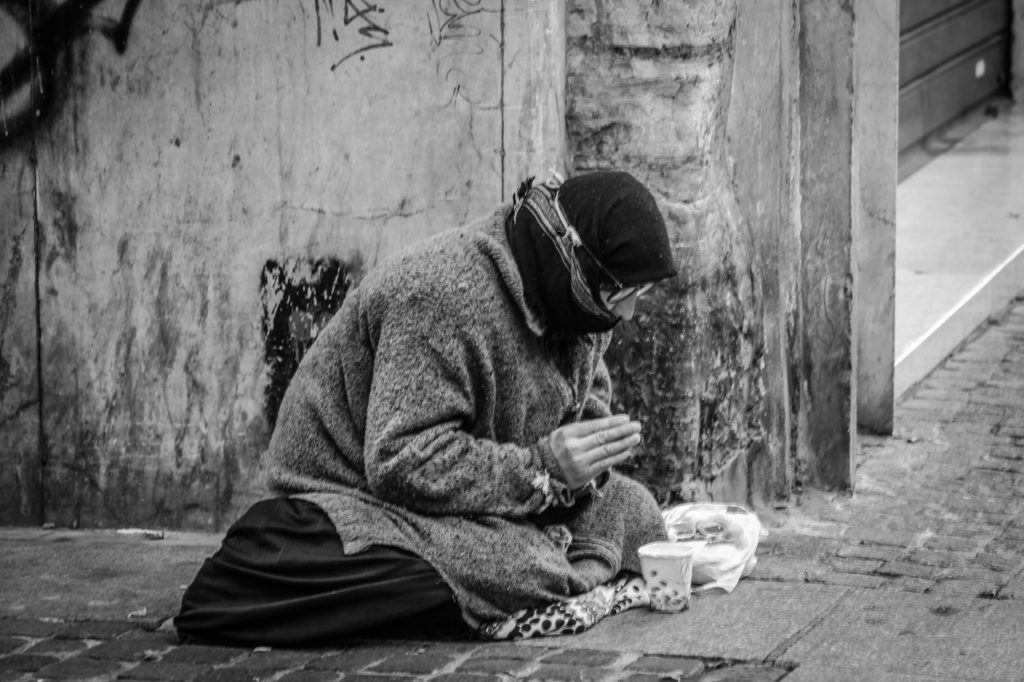Self-Sacrificing Gift
Thirty-Second Sunday in Ordinary Time
“This poor widow put in more than all the other contributors to the treasury.” Mark 12:43

We quickly come to admire the Old Testament widow whom Elijah asks for help. The Zarephath widow is carrying only “a couple of sticks,” to cook her limited resources, “a handful of flour and a little oil,” fulfilling her personal responsibility, “for myself and my son” (1 Kings 17:12). Elijah’s request demands great faith and self-sacrifice of this poor widow, because providing such life-sustaining care to a “foreign” prophet puts the widow’s survival and her son’s at great risk: her religion is worshipping paganism’s false idol, Baal; her king is father of Jezebel, now wife of Elijah’s king Ahab. Elijah is fleeing the death-threatening wrath of both Jezebel and Ahab, whom Elijah infuriated by declaring that God had decreed a drought to punish them for corrupting Israel with Jezebel’s Baal-worship. Elijah makes the widow’s risk explicit by promising that her flour and oil will not fail by power of “the Lord, the God of Israel (not her god, Baal!)” (17:14). Therefore, faith is demanded both of the one who gives, the widow, and of the one who asks, Elijah.
Today’s Gospel episode takes place just after Jesus enters Jerusalem immediately before his Passion. Trustfully and with self-sacrifice, like Zarephath’s widow and the widow whom Jesus sees at the temple, Jesus will give his all for our redemption. Thus Jesus emphasizes of the widow he sees that her gift is unreserved: “from her poverty, all she had, her whole livelihood” (Mark 12:44). And, doubtlessly, Jesus saw himself and his self-giving in her and her self-giving. In Mark’s next chapter Jesus predicts the downfall of this very temple. So the widow’s unreserved giving from what she could not afford must have struck Jesus both as a victimization by others and, in the end, as a useless gift: the building controlled by the scribes’ manipulation was destined for destruction. Her giving became a vivid prefiguring of his own victimization by others in the unreserved giving of his very life, which would seem to many a useless gift, for Jesus would die and be buried. Only Jesus’ true disciples—are we?—believe that, by his resurrection, Jesus has become the Cornerstone of the new building, the Church, that replaces that torn-down temple. Therefore, we are to make our own gift of self to God in our unceasing gift of self-sacrificing love to others until Jesus comes again.
Readings for the Week
Monday: Wis 1:1-7; Ps 139:1b-10; Lk 17:1-6
Tuesday: Ez 47:1-2, 8-9, 12; Ps 46:2-3, 5-6, 8-9; 1 Cor 3:9c-11, 16-17; Jn 2:13-22
Wednesday: Wis 6:1-11; Ps 82:3-4, 6-7; Lk 17:11-19
Thursday: Wis 7:22b — 8:1; Ps 119:89-91, 130, 135, 175; Lk 17:20-25
Friday: Wis 13:1-9; Ps 19:2-5ab; Lk 17:26-37
Saturday: Wis 18:14-16; 19:6-9; Ps 105:2-3, 36-37, 42-43; Lk 18:1-8
Sunday: Dn 12:1-3; Ps 16:5, 8-11; Heb 10:11-14, 18; Mk 13:24-32
Saints & Special Observances
Sunday: Thirty-second Sunday in Ordinary Time; Daylight Saving Time ends; National Vocation Awareness Week
Tuesday: The Dedication of the Lateran Basilica
Wednesday: St. Leo the Great
Thursday: St. Martin of Tours; Veterans Day
Friday: St. Josaphat
Saturday: St. Frances Xavier Cabrini
